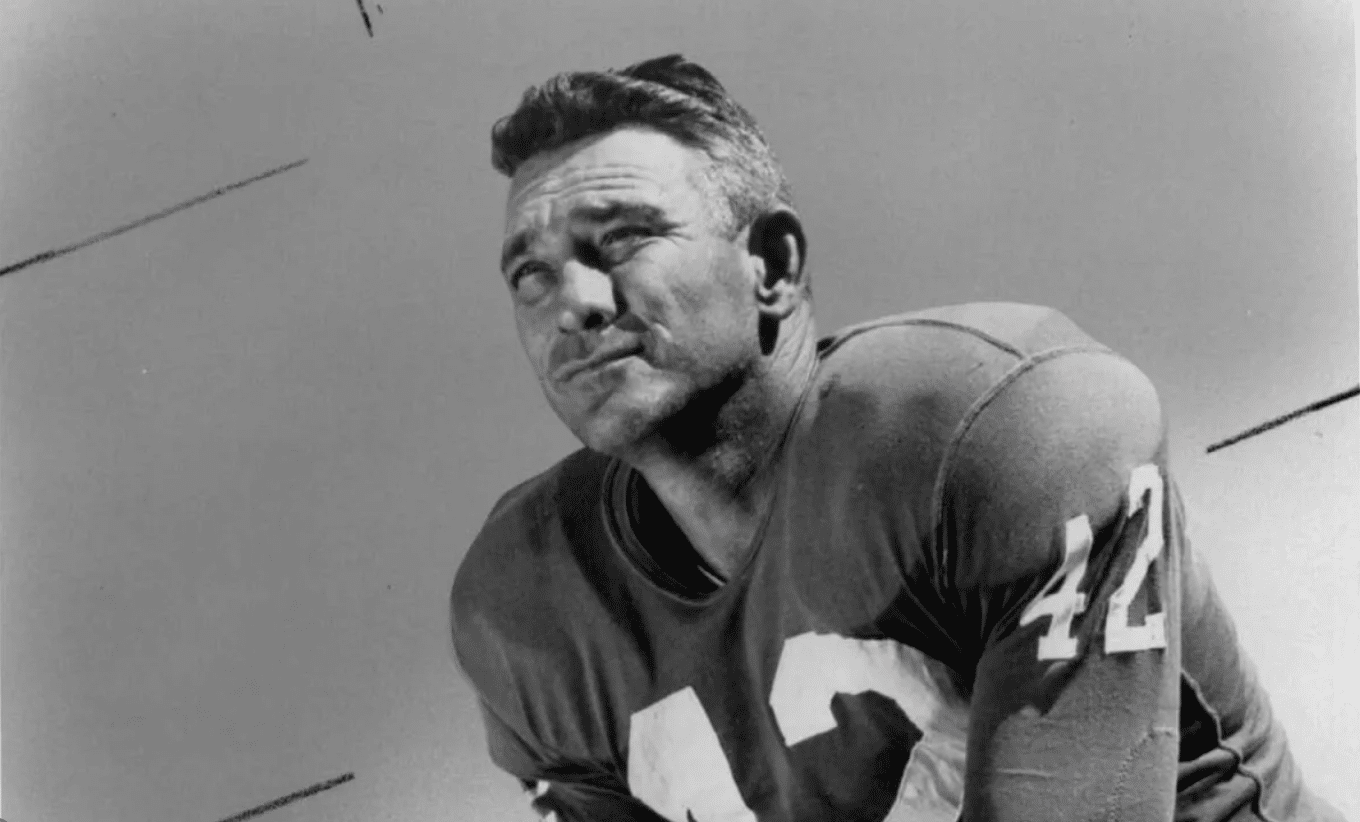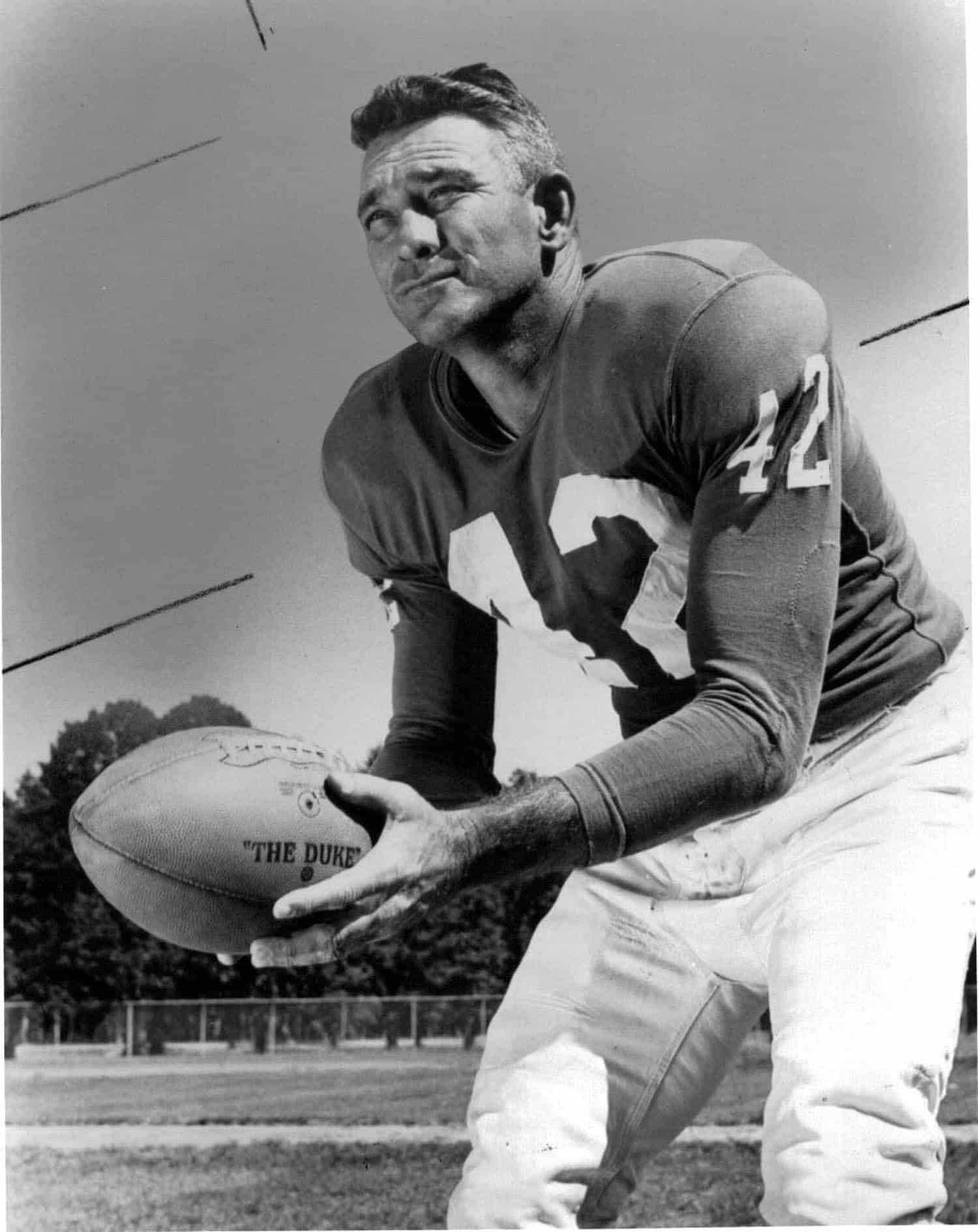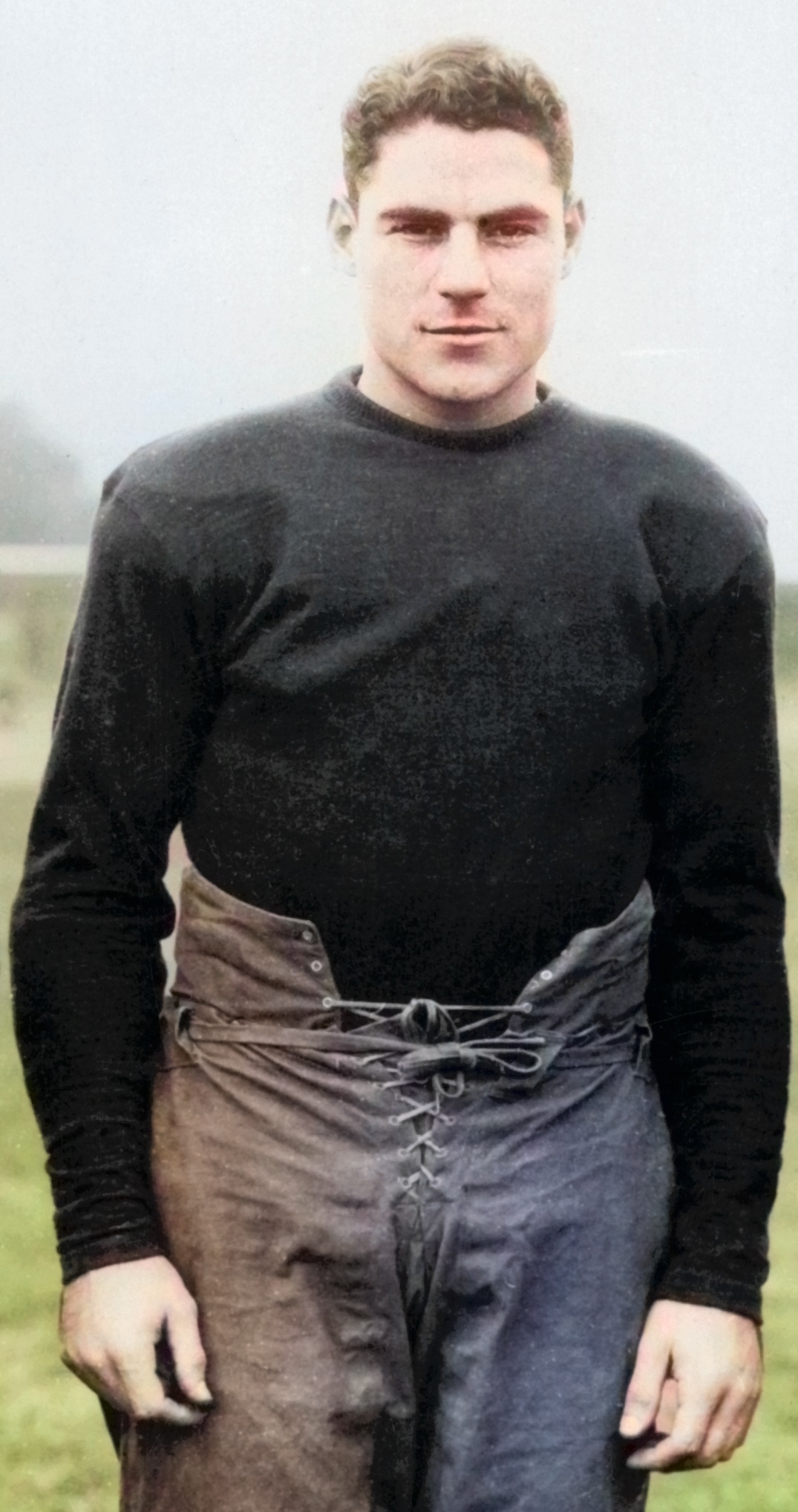Mississippi Today
64 years later, Chunkin’ Charlie still holds state’s best NFL passer rating


Brett Favre famously won three NFL MVP trophies. Eli Manning was a Super Bowl MVP, twice, beating Tom Brady both times. Steve McNair was once a co-NFL MVP with Peyton Manning. Archie Manning once led the NFC in passing yardage, playing for a 7-9 team. Dak Prescott has put some of the best passing numbers in pro football often in recent years.
You probably knew all that or at least most of it. Mississippi's professional quarterbacks have done some stuff.
But do you know what player holds the highest single season passer rating among Mississippi's professional quarterbacks? You might be surprised.
That quarterback would be none other than Chunkin' Charlie Conerly of Clarksdale and Ole Miss. It's not even close. Playing for the New York Giants in 1959, Conerly had a passer rating of 135, higher than Favre in any of his MVP seasons. All the more amazing, Conerly was 38 years old when he achieved that remarkable season, averaging 9 yards per passing attempt and 15 yards per completion. For comparison, 2022 MVP Patrick Mahomes averaged 8.1 yards per attempt and 12 yards per completion. It goes without saying how much more wide open and productive NFL offenses are now, compared to when Conerly played.

Not surprisingly, Conerly was the NFL MVP in '59, 11 years after he was pro football's Rookie of the Year in 1948. Unbelievably, Conerly was never selected for the Pro Football Hall of Fame — a travesty, and one that should be corrected.
Conerly's feat was just one of the surprising facts author/publisher Neil White and I uncovered while doing research for “The Mississippi Football Book.” There were lots more.

For instance, I always thought Ole Miss's Frank “Bruiser” Kinard was Mississippi's first consensus All American player. Not so. Six years before the great Bruiser was an All American at Ole Miss in 1936, a young man named Marchmont “Marchie” Schwartz of Bay St. Louis and Saint Stanislaus was twice an All American playing for the legendary Knute Rockne at Notre Dame. Marchie Schwartz, a running back, helped the Fighting Irish to a 25-2-1 record over three seasons, during which the team won two national championships. In 1930, he averaged 7.5 yards per carry. He later coached at several schools, including Notre Dame and Stanford and is a deserving member of the College Football Hall of Fame.
Care to guess which Mississippi university had the highest winning percentage all-time coming into this season? Ole Miss, you say. No, Jackson State is first, having won 59.3 percent of its games. Southern Miss is second at 57.4, with Ole Miss third at 56 percent.
But that's far from Jackson State's greatest claim to fame. For instance, the JSU Tigers have placed four greats — Lem Barney, Walter Payton, Bob Brazile and Jackie Slater — in the Pro Football Hall of Fame. That's as many as Ole Miss (2), Southern Miss (2) and Mississippi State (0) combined. It's twice as many as Auburn.
Since our book came out, I've asked dozens of Magnolia State football fans this question: Who is the only native Mississippian to win the Heisman Trophy? Invariably, the answer has been Doc Blanchard, the Army great who played his high school ball at Saint Stanislaus. Blanchard did win the Heisman in 1945. But here's the catch: Blanchard was a South Carolina native who was a boarding student at Saint Stanislaus. No, the first and thus far only native Mississippian to win the Heisman was – drum roll, please – Philadelphia and Neshoba County native Billy Cannon in 1959. And Cannon secured college football's top individual honor with his 89-yard punt return against Ole Miss, spoiling an otherwise perfect Ole Miss record and keeping the Rebels from winning every version of the national championship that year.
The great Lance Alworth of Brookhaven, Arkansas and pro football fame is surely one the greatest ever from this state. He famously earned the nickname “Bambi,” but do you know where he got that nickname? Charlie Flowers, the Ole Miss great who might have won the Heisman in 1959 if not for Cannon's punt return, and Alworth were later teammates with the San Diego Chargers. One day when they were walking off the practice field, Flowers stopped Alworth and told him: “You're Bambi.”
“What for?” Alworth asked him.
“Because of those big brown eyes and because of the way you move,” Flowers answered. Bambi stuck.
“The Mississippi Football Book” tells the stories of the greatest players, coaches, teams and games in this state's rich football history. Much of it I knew from 58 years of reporting and writing about Mississippi football. But some of it, quite a bit actually, I did not.
Rick Cleveland and Neil White will sign “The Mississippi Football Book” on Friday afternoon, Oct. 27, at Off Square Books in Oxford beginning at 5:30 p.m. They will be at Lemuria in Jackson on Nov. 17 at 4:30 p.m. with a program at 5 p.m.
This article first appeared on Mississippi Today and is republished here under a Creative Commons license.
Mississippi Today
On this day in 1968
MAY 11, 1968

The Poor People's Campaign arrived in Washington, D.C. A town called “Resurrection City” was erected as a tribute to the slain Martin Luther King Jr.
King had conceived the campaign, which was led by his successor at the head of the Southern Christian Leadership Conference, Ralph David Abernathy. Civil rights leader Jesse Jackson reached out to young Black men wanting vengeance for King's assassination.
“Jackson sat them down and said, ‘This is just not the way, brothers. It's just not the way,”' recalled Lenneal Henderson, then a student at the University of California at Berkeley. “He went further and said, ‘Look, you've got to pledge to me and to yourself that when you go back to wherever you live, before the year is out, you're going to do two things to make a difference in your neighborhood.' It was an impressive moment of leadership.”
This article first appeared on Mississippi Today and is republished here under a Creative Commons license.
Mississippi Today
Lawmakers may have to return to Capitol May 14 to override Gov. Tate Reeves’ potential vetoes
Legislators might not have much notice on whether they will be called back to the Mississippi Capitol for one final day of the 2024 session.
Speaker Jason White, who presides over the House, and Lt. Gov. Delbert Hosemann, who presides over the Senate, must decide in the coming days whether to reconvene the Legislature for one final day in the 2024 session on Tuesday at 1 p.m.
Lawmakers left Jackson on May 4. But under the joint resolution passed during the final days of the session, legislators gave themselves the option to return on May 14 unless Hosemann and White “jointly determine that it is not necessary to reconvene.”
The reason for the possible return on Tuesday presumably is to give the Legislature the opportunity to take up and try to override any veto by Gov. Tate Reeves. The only problem is the final bills passed by the Legislature — more than 30 — are not due action by Reeves until Monday, May 13. And technically the governor has until midnight Monday to veto or sign the bills into law or allow them to become law without his signature.
Spokespeople for both Hosemann and White say the governor has committed to taking action on that final batch of bills by Monday at 5 p.m.
“The governor's office has assured us that we will receive final word on all bills by Monday at 5 p.m.,” a spokesperson for Hosemann said. “In the meantime, we are reminding senators of the possibility of return on Tuesday.”
A spokesperson for White said, “Both the House and Senate expect to have all bills returned from the governor before 5 p.m. on Monday. The lieutenant governor and speaker will then decide if there is a reason to come back on May 14.”
The governor has five days to act on bills after he receives them while legislators are in session, which technically they still are. The final batch of bills were ready for the governor's office one day before they were picked up by Reeves staff. If they had been picked up that day earlier, Reeves would have had to act on them by Saturday.
At times, the governor has avoided picking up the bills. For instance, reporters witnessed the legislative staff attempt to deliver a batch of bills to the governor's Capitol office one day last week, but Reeves' staff refused to accept the bills. They were picked up one day later by the governor's staff, though.
Among the bills due Monday is the massive bill that funds various projects throughout the state, such as tourism projects and infrastructure projects. In total, there are more than 325 such projects totaling more than $225 million in the bill.
In the past, the governor has vetoed some of those projects.
The governor already has taken action of multiple bills passed during the final days of the session.
He allowed a bill to strip some of the power of the Public Employees Retirement System Board to become law without his signature. The bill also committed to providing a 2-and-one-half percent increase in the amount governmental entities contribute to the public employee pension plan over a five year period.
A bill expanding the area within the Capitol Complex Improvement District, located in the city of Jackson, also became law without his signature. The CCID receives additional funding from the state for infrastructure projects. A state Capitol Police Force has primary law enforcement jurisdiction in the area.
The governor signed into law earlier this week legislation replacing the long-standing Mississippi Adequate Education Program, which has been the mechanism to send state funds to local schools for their basis operation.
This article first appeared on Mississippi Today and is republished here under a Creative Commons license.
Mississippi Today
On this day in 2007


MAY 10, 2007

An Alabama grand jury indicted former state trooper James Bonard Fowler for the Feb. 18, 1965, killing of Jimmie Lee Jackson, who was trying to protect his mother from being beaten at Mack's Café.
At Jackson's funeral, Martin Luther King Jr. called him “a martyred hero of a holy crusade for freedom and human dignity.” As a society, he said, “we must be concerned not merely about who murdered him, but about the system, the way of life, the philosophy which produced the murderer.”
Authorities reopened the case after journalist John Fleming of the Anniston Star published an interview with Fowler in which he admitted, despite his claim of self-defense, that he had shot Jackson multiple times. And Fleming uncovered Fowler's killing of another Black man, Nathan Johnson. In 2010, Fowler pleaded guilty to second-degree manslaughter and was sentenced to six months behind bars.
This article first appeared on Mississippi Today and is republished here under a Creative Commons license.
-
SuperTalk FM5 days ago
Legislation outlawing ‘squatted’ vehicles in Mississippi signed into law
-
SuperTalk FM3 days ago
Mississippi governor approves bill allowing electronic search warrants
-
228Sports5 days ago
PRC’s Bats Come Alive Late As Blue Devils Beat Picayune To Advance To 6A South State Title Series
-
Mississippi Today7 days ago
On this day in 1917
-
Mississippi News6 days ago
LCSO wants people aware of a scam circling the area
-
Mississippi News6 days ago
Winston Co. Sheriff’s Office investigates shooting at Dave’s Club
-
Mississippi News4 days ago
Strong storms late Wednesday night – Home – WCBI TV
-
Mississippi News3 days ago
Louisville names street after a former high school






































